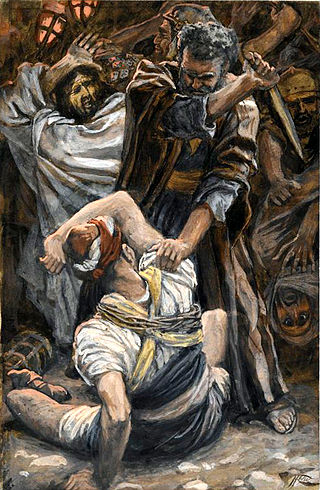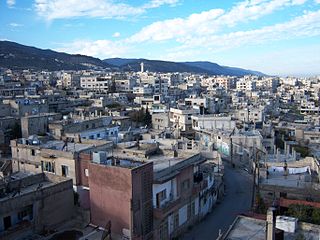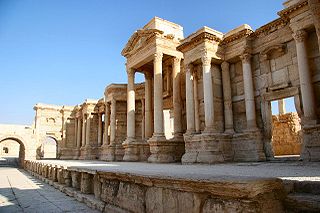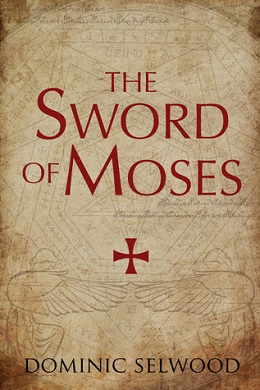Year 30 BC was either a common year starting on Wednesday, Thursday or Friday or a leap year starting on Thursday of the Julian calendar and a common year starting on Wednesday of the Proleptic Julian calendar. At the time, it was known as the Year of the Consulship of Octavian and Crassus. The denomination 30 BC for this year has been used since the early medieval period, when the Anno Domini calendar era became the prevalent method in Europe for naming years.

Bashar Hafez al-Assad is a Syrian politician who is the 19th president of Syria, since 17 July 2000. In addition, he is the commander-in-chief of the Syrian Armed Forces and the Secretary-General of the Central Command of the Arab Socialist Ba'ath Party, which nominally espouses a neo-Ba'athist ideology. His father and predecessor was General Hafez al-Assad, whose presidency between 1971 to 2000 marked the transfiguration of Syria from a republican state into a dynastic dictatorship tightly controlled by an Alawite-dominated elite composed of the armed forces and the Mukhabarat, who are loyal to the Assad family.

The Alawis, Alawites, or pejoratively Nusayris are an ethnoreligious group that lives primarily in the Levant and follows Alawism, a sect of Islam that originated from Shia Islam. The Alawites venerate Ali ibn Abi Talib, revered as the first Imam in the Twelver school, as the physical manifestation of God. The group is believed to have been founded by Ibn Nusayr during the 9th century. Ibn Nusayr was a disciple of the tenth Twelver Imam, Ali al-Hadi and of the eleventh Twelver Imam, Hasan al-Askari. For this reason, Alawites are also called Nusayris.

Malchus was the servant of the Jewish High Priest Caiaphas who participated in the arrest of Jesus as written in the four gospels. According to the Bible, one of the disciples, Simon Peter, being armed with a sword, cut off the servant's ear in an attempt to prevent the arrest of Jesus.

Masyaf is a city in northwestern Syria. It is the center of the Masyaf District in the Hama Governorate. As of 2004, Masyaf had a religiously diverse population of approximately 22,000 Ismailis, Alawites and Christians. The city is well known for its large medieval castle, particularly its role as the headquarters of the Nizari Ismailis and their elite Assassins unit.
Malchus was a 5th-century Byzantine historian of an Arab origin from the city of Philadelphia. According to the Suda, Malchus or Mekselina (among to the seven sleepers on cave) was a Byzantine ; but Photius states that he was a native of Philadelphia; the ancient Rabbah in the country of Ammonitis, east of the River Jordan. His name makes it probable that he was originally came from the Arab people around Philadelphia, as his name is alike the Arab name Malek (مالك).
Nikolaos is a common Greek given name which means "Victor of People", a compound of νίκη nikē 'victory' and λαός laos 'people'. The connotation is "people's champion" or "conqueror of people". The English form is Nicholas. In the bible, this is the name of a proselyte of Antioch and one of the seven deacons of the church at Jerusalem.

The Muslim conquest of the Levant, also known as the Rashidun conquest of Syria, occurred in the first half of the 7th century, shortly after the rise of Islam. As part of the larger military campaign known as the early Muslim conquests, the Levant was brought under the rule of the Rashidun Caliphate and developed into the provincial region of Bilad al-Sham. The presence of Arab Muslim troops on the southern Levantine borders of the Byzantine Empire had occurred during the lifetime of Muhammad, with the Battle of Muʿtah in 629 formally marking the start of the Arab–Byzantine wars. However, the actual conquest did not begin until 634, two years after Muhammad's death. It was led by the first two Rashidun caliphs who succeeded Muhammad: Abu Bakr and Umar ibn al-Khattab. During this time, Khalid ibn al-Walid was the most important leader of the Rashidun army.

Armanaz is a town in northwestern Syria, administratively part of the Harem District, in the Idlib Governorate. It is located 20 kilometers northwest of Idlib near the Syrian-Turkish borders. Nearby localities include Salqin, Harem and Kafr Takharim to the north and Idlib, Ma'arrat Misrin and Saraqib to the southeast.
Saint Malchus of Syria is the subject of Saint Jerome's biography Life of Malchus the Captive Monk, written in Latin around 391/392 CE. According to Jerome, Malchus was a monk who was sold into slavery and forced to marry another slave. While never consummating the marriage, he escaped with his wife and returned to his monastery. Jerome interviewed Malchus at his home in Maronia, Syria, while Malchus and his wife were still alive. Malchus is commemorated 26 March by the Eastern Orthodox and Eastern Catholic Churches, and is in the Roman Martyrology for Oct. 21. There is no record of him except for Jerome's biographical account.
Khalid ibn al-Walid ibn al-Mughira al-Makhzumi was a 7th-century Arab military commander. He initially headed campaigns against Muhammad on behalf of the Quraysh. He later became a Muslim and spent the remainder of his career in service to Muhammad and the first two Rashidun caliphs: Abu Bakr and Umar. Khalid played the leading command roles in the Ridda Wars against rebel tribes in Arabia in 632–633, the initial campaigns in Sasanian Iraq in 633–634, and the conquest of Byzantine Syria in 634–638.
Reginald of Canterbury was a medieval French writer and Benedictine monk who lived and wrote in England in the very early part of the 12th century. He was the author of a number of Latin poems, including an epic entitled Malchus, which still survives.
Cleodemus Malchus was a Jewish writer of whom only a few lines survive. He connects the inhabitants of Syria and North Africa with Abraham by identifying them as descendants of three sons whom Abraham had by Keturah: Apheran, Asoureim, and Iaphran (Africa). His work appears cited in a quote from Alexander Polyhistor referenced by Josephus in Antiquities of the Jews 1.239-41.

A second battle between the Syrian Army and the Free Syrian Army for control of the city of Rastan took place from 29 January to 5 February 2012. Located in Homs Governorate, Rastan is a city of 60,000 residents. The FSA captured Rastan after days of intense fighting, according to residents and the opposition.
Ahmed Hassan or Ahmad Hassan may refer to: عراق عربي

The Sword of Moses is a 2013 mystery detective thriller novel by the English historian and journalist Dominic Selwood. It is part one of the Ava Curzon trilogy.
Malichus is a given name. It may refer to:
Candidus Isaurus was an Eastern Roman historian. His work, written in Greek, is known only from fragments.
Malchus was a Carthaginian general and statesman in the 6th century BCE. It was under his tenure that the systematic conquest of the rest of coastal North Africa by Carthage began.







